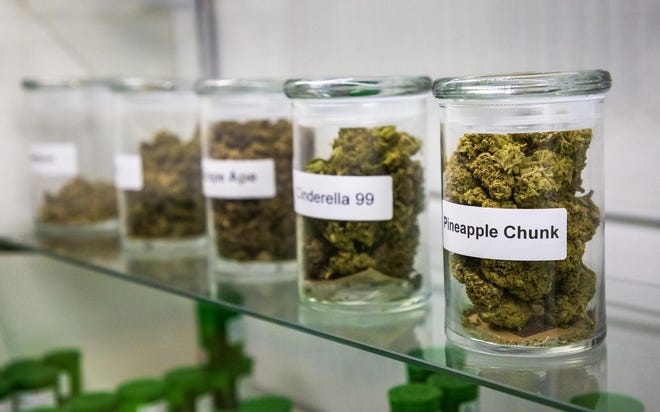During a seemingly standard discussion on updating the drug classification system in Kansas, which organizes drugs into five levels based on their medical utility and abuse potential, the Kansas House of Representatives unexpectedly delved into the topic of marijuana legalization. This classification system is designed to align with the Drug Enforcement Agency’s standards.
Democrat Representative Silas Miller from Wichita sparked the conversation by suggesting an amendment to entirely exclude marijuana from the drug scheduling. As it stands, both Kansas and the DEA categorize marijuana as a schedule 1 substance, indicating it is believed to have no medical benefits and a high risk for abuse.
Even if Kansas were to reclassify marijuana, it would remain illegal under federal law. However, the federal government has largely taken a hands-off approach in states where marijuana has been either legalized or decriminalized. The DEA announced in January that it is reconsidering marijuana’s classification. Advocates argue for its reclassification to schedule 3, acknowledging its abuse potential but recognizing it’s less prone to cause dependency.
Currently, 24 states have fully legalized marijuana, while an additional 14 states have either allowed its medical use or decriminalized its possession. Kansas remains among the dwindling number of states where possessing marijuana is completely illegal.
In 2021, the House approved a bill for medical marijuana, which, however, stalled without being taken up by the Senate. A similar bill was dismissed by a Senate committee in 2023.
House Speaker Dan Hawkins, a Republican from Wichita, recommended voting against Miller’s amendment but hinted at a willingness to consider marijuana reform in the future.
“This issue is not unfamiliar to us, and it is one we will engage with again,” Hawkins commented. “We’ve previously passed it to the Senate without success, but I believe progress is being made, and our opportunity will come.”
With no significant movement on the issue in the House for three years, several Democrats seized the moment to raise the topic.
“The necessity of having this conversation was emphasized by some members, highlighting our previous inability to do so,” Miller noted. “Taking this step opens the door to more productive discussions on the matter.”
Eliminating marijuana from the drug schedules does not establish a legal or medical market for cannabis and may not affect existing criminal statutes against possession. Representative Brenda Landwehr, a Wichita Republican and opponent of the 2021 medical marijuana legislation, argued that such a move would only lead to confusion.
“Removing marijuana from the schedule doesn’t legalize it but complicates the legal landscape, potentially misleading some into thinking it’s legally permissible when it’s not,” Landwehr explained.
The proposed amendment was defeated with an 80-40 vote, primarily along party lines, though there were exceptions with four Republicans in favor and two Democrats against.
OTHER NEWS: Rising Concerns: How Children are Being Targeted by Cannabis Edible Marketing









